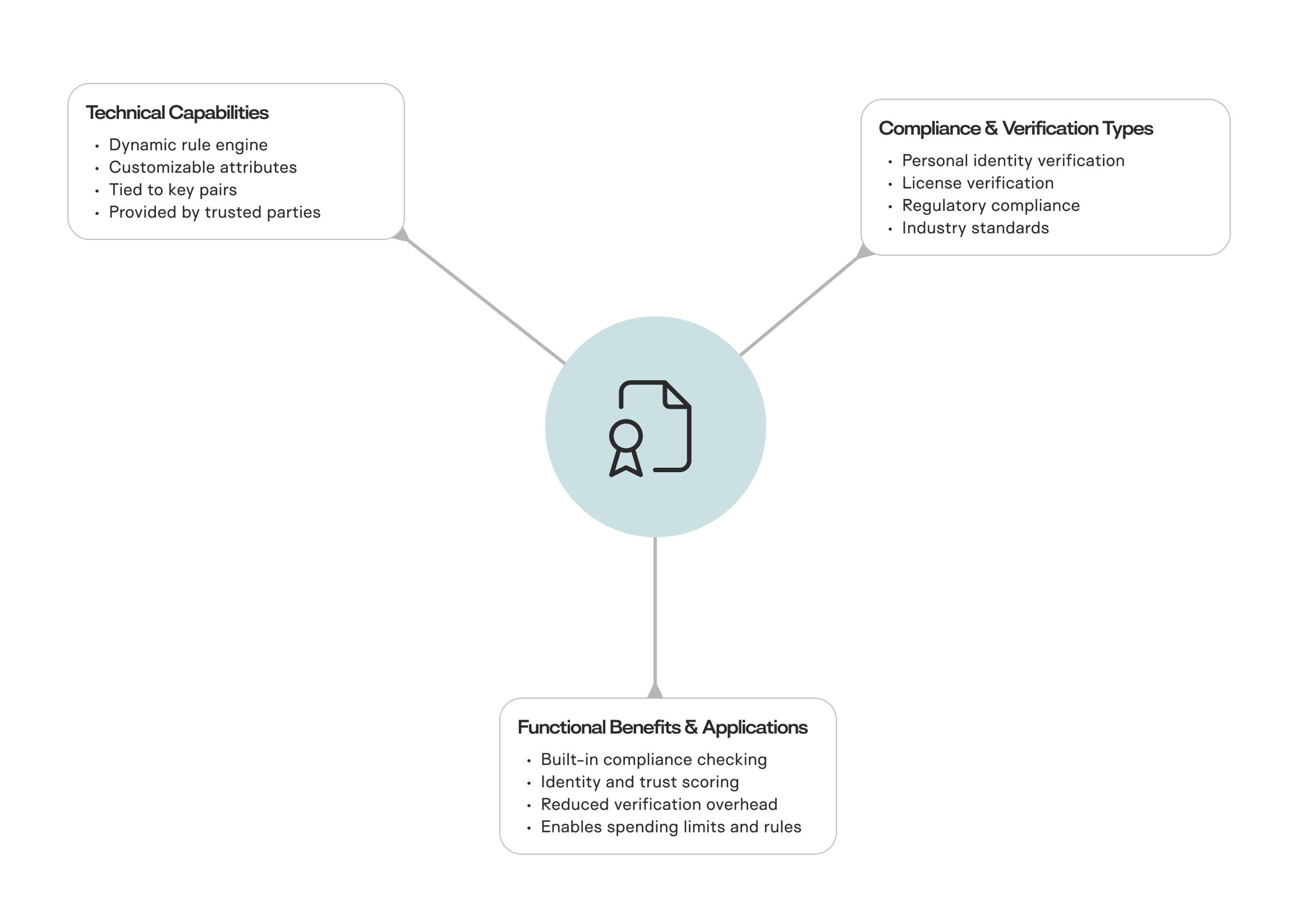Certificates
Certificates on the network can be attached to accounts to serve as digital credentials that validate the identity, qualifications, and capabilities of participants within the system. These certificates are fundamental to establishing trust and enabling secure interactions between various parties on the network.

Scope & Flexibility
At their core, Keeta certificates are structured pieces of information that can represent a wide range of attributes. These may include Know Your Customer (KYC) verifications, business licenses, regulatory compliance certifications, and other important qualifications.
The flexibility of the certificate system allows for the representation of virtually any relevant attribute that may be required for network operations.
Dynamic Nature
One of the key features of certificates on the Keeta Network is their dynamic nature. Unlike traditional static credentials, these certificates can be updated and modified over time through Keeta's Dynamic Rule Engine. This adaptability ensures that the information remains current and relevant, reflecting any changes in a participant's status or qualifications.
Compliance & Security
Certificates play a crucial role in the network's compliance and security framework. They not only validate the legitimacy of participants but also define their capabilities within the system.
For example, a certificate might specify transaction limits, access rights, or the types of operations a participant is authorized to perform. This certificate-based approach to identity and permissions management helps streamline processes, and reduce verification overhead.